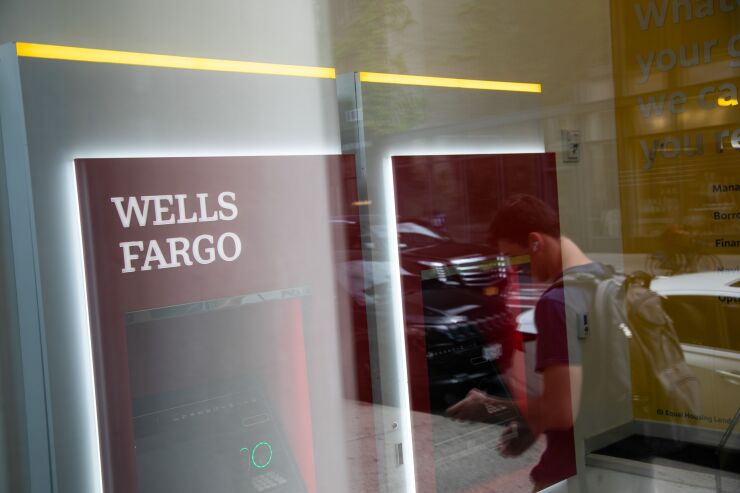
U.S. labor board prosecutors plan to formally accuse Wells Fargo & Co. of violating federal labor law at an Oregon call center, unless a settlement is reached that addresses the agency's concerns.
A regional director of the National Labor Relations Board has determined that the company illegally imposed a rule prohibiting employees from distributing pro-union literature unless management first approved it, agency spokesperson Kayla Blado said in an email. The regional official also determined that the company illegally removed pro-union literature from non-work areas on its property. Absent a settlement, he will issue a complaint against the company on behalf of the labor board's general counsel, Blado said Thursday.
Wells Fargo declined to discuss the specifics of the Oregon case. "We respect employees' rights under the National Labor Relations Act and our policies do not prohibit employees from discussing wages, benefits and terms of employment, or otherwise engaging in collective activity," spokesperson Sunny Rodriguez said in an emailed statement. The company has said that it believes employees "are best served by working directly with the company and its leadership" rather than unionizing.
The Communications Workers of America union, which brought the labor board case, has been working for a decade to establish a foothold among workers such as tellers and personal bankers, and in recent years made inroads in the industry by successfully organizing around 125 staff at Beneficial State Bank and a pair of credit unions.
In a February internal PowerPoint presentation viewed by Bloomberg News, Wells Fargo
Federal labor law protects employees' right to communicate with each other about working conditions or about unionizing, including by distributing leaflets in their breakrooms. "Requiring prior approval would be a restriction on their ability to communicate with each other," said former NLRB member Wilma Liebman, who chaired the agency under President Barack Obama and now teaches labor law at New York University.
Complaints filed by NLRB regional directors are considered by agency judges, whose rulings can be appealed to labor board members in Washington DC, and from there into federal court. The agency lacks authority to hold managers personally liable for violations or impose punitive damages, but can order companies to change policies or notify workers about their rights.
In April, Wells Fargo settled a different NLRB case in Salt Lake City, where an employee alleged he was threatened with retaliation for distributing pro-union literature. As part of that settlement, the company agreed to post a notice at the Utah location telling employees, "We will not enforce our no-solicitation, no-distribution rule to prohibit you from distributing union flyers in non-working areas on company property."






